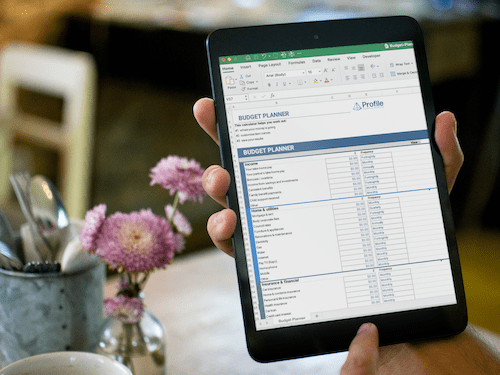Welcome to the third instalment
This insightful article is the third instalment of out limited five-part series Decoding Financial Success for Business Owners: The 10 Factors You Need To Know that explores the unique financial landscape that is business ownership and financial security.
Thus far we have delved into superannuation and diversification, as well as risk management and funding options. Today we turn our attention to cash flow and tax management.

5.Cash Flow is Crucial
Cash flow management is one of the most important aspects of financial planning for small business owners. A cash flow refers to the amount of money that is moving in and out of your business on a regular basis. By improving your cash flow, you can ensure that the money you need to survive and thrive is always readily available.
There is no doubt that a healthy cash flow is the lifeblood of a business. It enables you to meet current obligations, like paying employees and purchasing raw materials, while also building up a reserve for investments and emergencies.
Proper cashflow management, creating a good invoicing system, accurately pricing your jobs, and managing receivables and payables can have a huge impact on your improved monthly cash flow. They will also enable you to better track your cash flow. Implementing technology and automation can help make sure you can trail the time and costs of your labour and facilitate the way you maximise your access to capital.
Performing a formal cash flow analysis will tell you how much money is flowing in and out of your business. This knowledge allows you to plan accordingly. When you do these analyses regularly, you will gain historical perspective and be able to determine the amount you should set aside as reserves to better manage leaner months or an unexpected cash flow shortage.
Tips for consistent cash flow:
-
Prepare and maintain a cash flow forecast
-
Establish clear payment terms
-
Invoice right away
-
Offer periodic payment packages
-
Make payment easy for your clients
-
Minimise your debtor days
-
Focus on cash flow, not profits
-
Look at the big picture
-
Outsource CFO services
6. Tax Management
Smart tax planning is essential for business owners. Whilst staying up-to-date with all your tax obligations is essential to avoid any potential fines or penalties from the ATO, smart tax planning is much more than just a tax return.
It’s about ensuring that your record-keeping is current and correct throughout the year. It’s also about ensuring you have full transparency over your financial position at all times.
Just as importantly, it’s about working with a qualified tax practitioner or other financial professional, who is knowledgeable in how to best minimise your tax liability through various tax management strategies.
For instance, Australian small business owners have access to various tax concessions designed to reduce their tax liabilities and streamline tax reporting. Ensuring you utilise these concessions, where eligible, can result in significant savings and better overall financial efficiency.
Some key tax concessions to consider include:
-
Instant asset write-off
This enables you to claim an immediate deduction for the cost of new or second-hand assets acquired in your small business, provided they meet the eligibility criteria.
-
Small business CGT concessions
To encourage and support small businesses, the Australian government provides several concessions on CGT that can significantly reduce or completely eliminate tax on the sale of certain business assets.
-
Small business income tax offset
This offset offers eligible small business owners a tax rebate, capped at $1,000 per financial year.
At Profile Services we can help you proactively manage your cashflow and tax to put you in the most optimal position possible from both a personal and professional perspective. Contact our team today to find out how we can help you do more with your money.
And don’t forget to join us for the penultimate part of this limited series when we delve into the different business structures and discuss succession planning.






